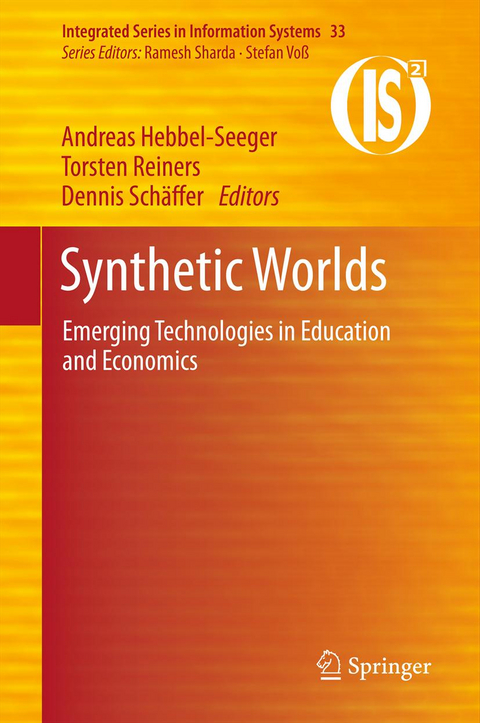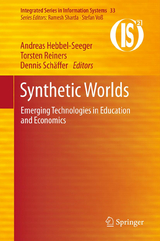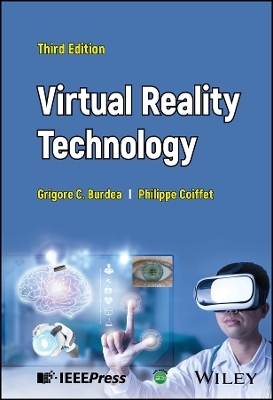Synthetic Worlds
Springer-Verlag New York Inc.
978-1-4614-6285-9 (ISBN)
The editors of this book captures the state of research in the field intended to reflect the rapidly growing yet relatively young market in education and business. The general focus is set on the scientific community but integrates the practical applications for businesses, with papers on information systems, business models, and economics.
In six parts, international authors – all experts in their field – discuss the current state-of-the-art of virtual worlds/alternate realities and how the field will develop over the next years. Chapters discuss the influences and impacts in and around virtual worlds. Part four is about education, with a focus on learning environments and experiences, pedagogical models, and the effects on the different roles in the educational sector. The book looks at business models and how companies can participate in virtual worlds while receiving a return on investment, and includes cases and scenarios of integration, from design, implementation to application.
Andreas Hebbel-Seeger is professor for media management and vice dean at the Campus Hamburg of MHMK, Macromedia University of applied sciences media and communication. Together with Torsten Reiners he's one of the early contributors to "Campus Hamburg" in Second Life, a private-public initiative since 2007. He's the developer of several serious games and does research in the field of game based learning as well as concerning to the impact of advertising in virtual worlds. Torsten Reiners is currently Senior Lecturer in the School of Information Systems at Curtin University, Perth, Australia. Dr Reiners has been involved in various projects investigating education in virtual environments. Most notable, Dr Reiners was co-founder of the Second Life representation of the University of Hamburg and the island "Australis 4 Learning"; coordinating all the related projects in 2008-2012. He participated in the project "VirtualPREX" about pre-school teacher education in Second Life and recently received a national grant for his project "nDiVE" about the facilitation of authentic education in Logistics and Supply Chain Management. Dennis Schaffer is currently working at the Faculty of Education at the University of Bielefeld. From 2007 until 2010 he was one of the innovating and leading heads of the "E-Learning 3D" project in Second Life. The project was assigned to develop a virtual learning environment in which students as well as lecturers can interact without being actually on the campus in an rich 3D environment. Currently his main work is focused on international adult education, virtual worlds, personal learning environments (PLE) and the Social Web. Dennis Schaffer is currently working at the Faculty of Education at the University of Bielefeld. From 2007 until 2010 he was one of the innovating and leading heads of the "E-Learning 3D" project in Second Life. The project was assigned to develop a virtual learning environment in which students as well as lecturers can interact without being actually on the campus in an rich 3D environment. Currently his main work is focused on international adult education, virtual worlds, personal learning environments (PLE) and the Social Web.
TÜV Nord in 3D: Avatars at Work | From Second Life to the Web 3D.- How Linden Lab Built a Virtual World for Business and Education.- Transforming Ideas to Innovations: A Methodology for 3D Systems Development.- Second Life as a Social Experiment.- Social Navigation for Learning in Immersive Worlds.- 3D Digital Environments for Virtual Teams.- Second Life as a Virtual Lab Environment.- Taking the Distance out of Learning for Students through a Virtual World.- Pedagogical and Psychological Impacts of Teaching and Learning in Virtual Realities.- Virtual World-Building: Implications for Education and Training.- Game-based Elements to Upgrade Bots to Non-Player Characters in Support of Educators.- Collaborative Learning in Virtual Environments.- Business Meets Community in Virtual Berlin.- Supporting Diverse Needs of Learning Groups: Towards Highly Flexible Learning Settings in Collaborative 3D Virtual Environments.- Transforming Ideas to Innovations: A Methodology for 3D Systems Development.
| Erscheint lt. Verlag | 9.8.2013 |
|---|---|
| Reihe/Serie | Integrated Series in Information Systems ; 33 |
| Zusatzinfo | 161 Illustrations, color; 18 Illustrations, black and white; XX, 415 p. 179 illus., 161 illus. in color. |
| Verlagsort | New York, NY |
| Sprache | englisch |
| Maße | 155 x 235 mm |
| Themenwelt | Mathematik / Informatik ► Informatik ► Datenbanken |
| Mathematik / Informatik ► Informatik ► Netzwerke | |
| Informatik ► Office Programme ► Outlook | |
| Mathematik / Informatik ► Mathematik ► Finanz- / Wirtschaftsmathematik | |
| Sozialwissenschaften ► Pädagogik | |
| Wirtschaft ► Allgemeines / Lexika | |
| Schlagworte | Alternate Reality • semantic web • Serious Games • Synthetic Worlds • Virtual Worlds • Web 2.0 • World Wide Web |
| ISBN-10 | 1-4614-6285-1 / 1461462851 |
| ISBN-13 | 978-1-4614-6285-9 / 9781461462859 |
| Zustand | Neuware |
| Haben Sie eine Frage zum Produkt? |
aus dem Bereich




